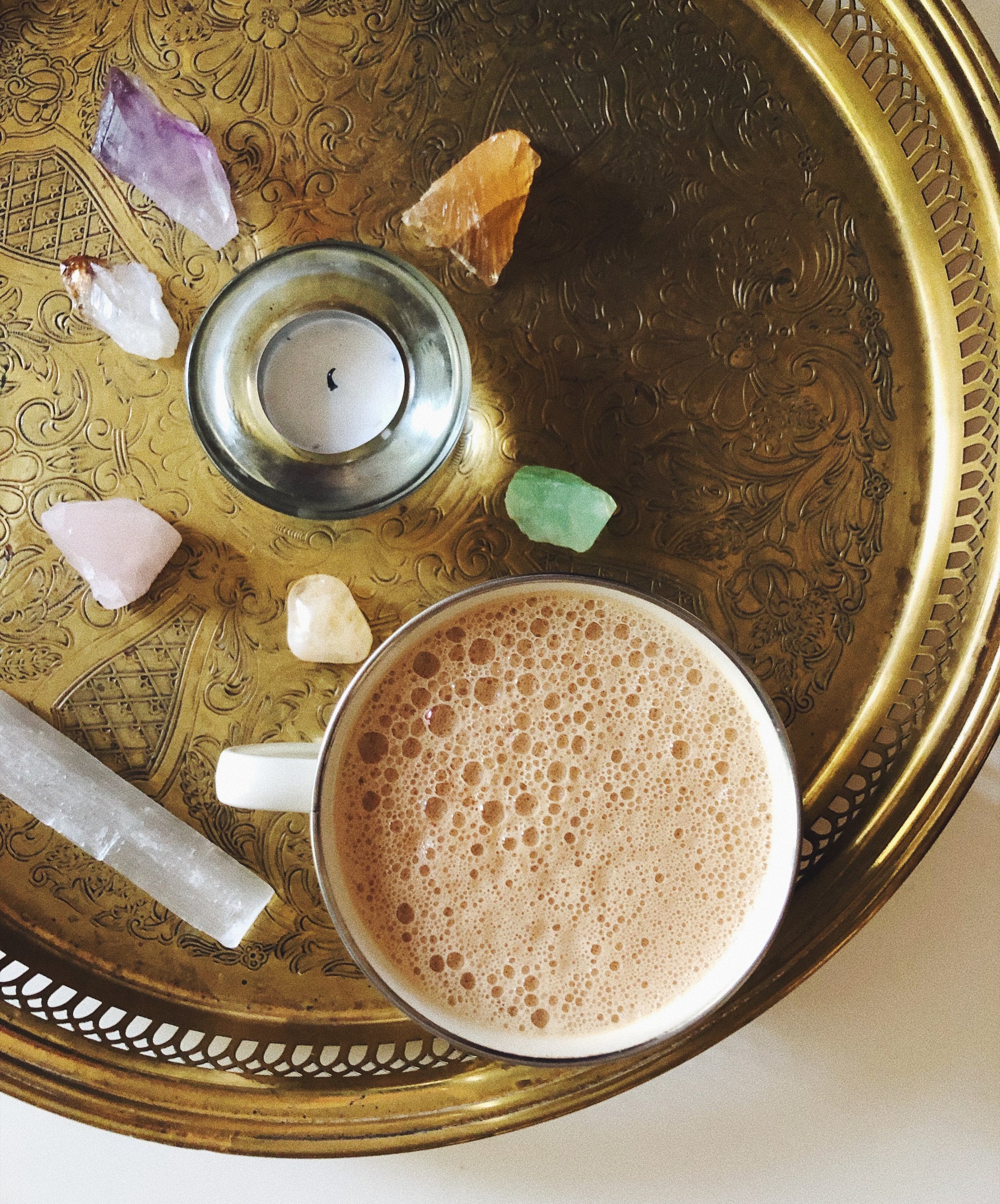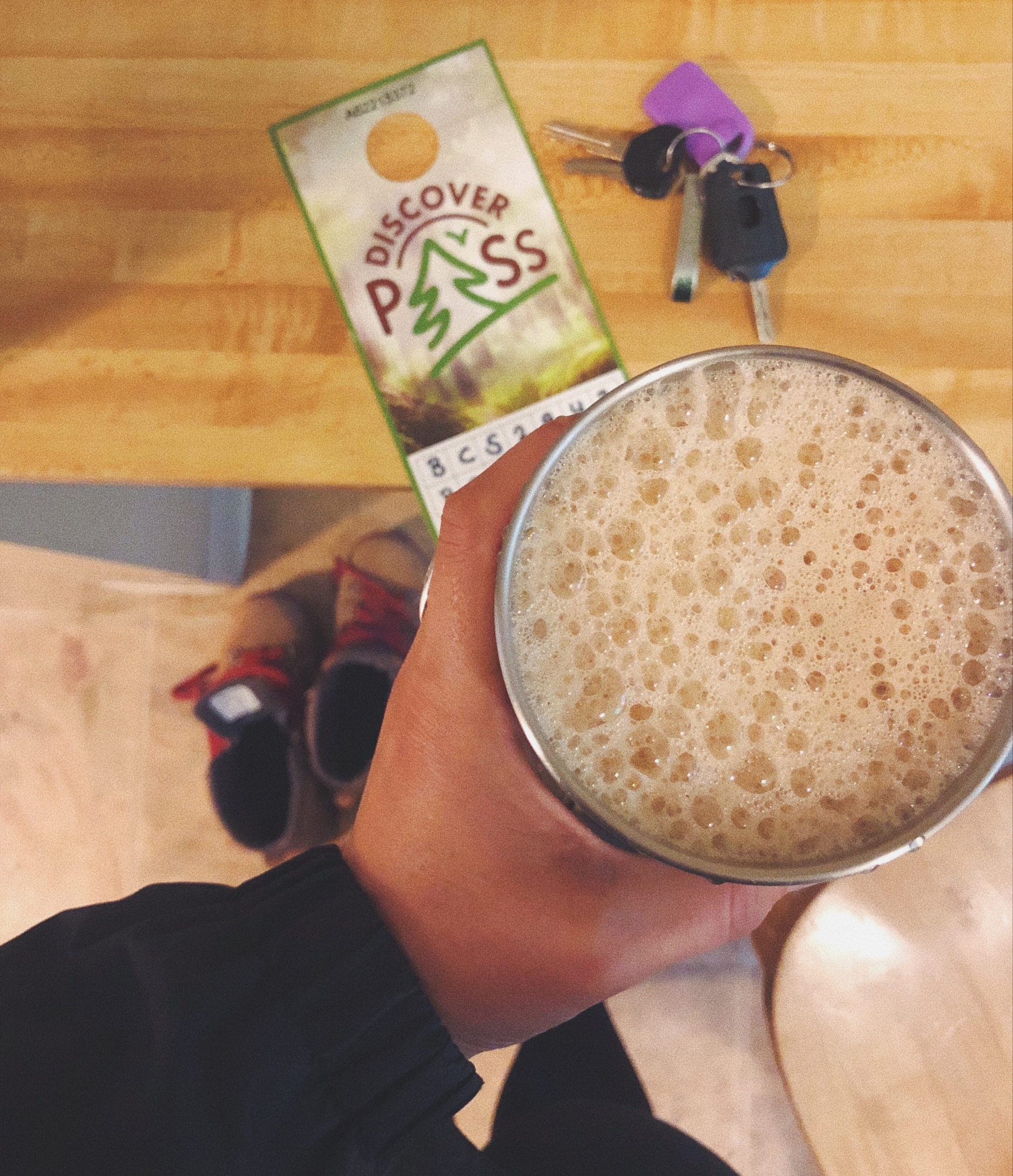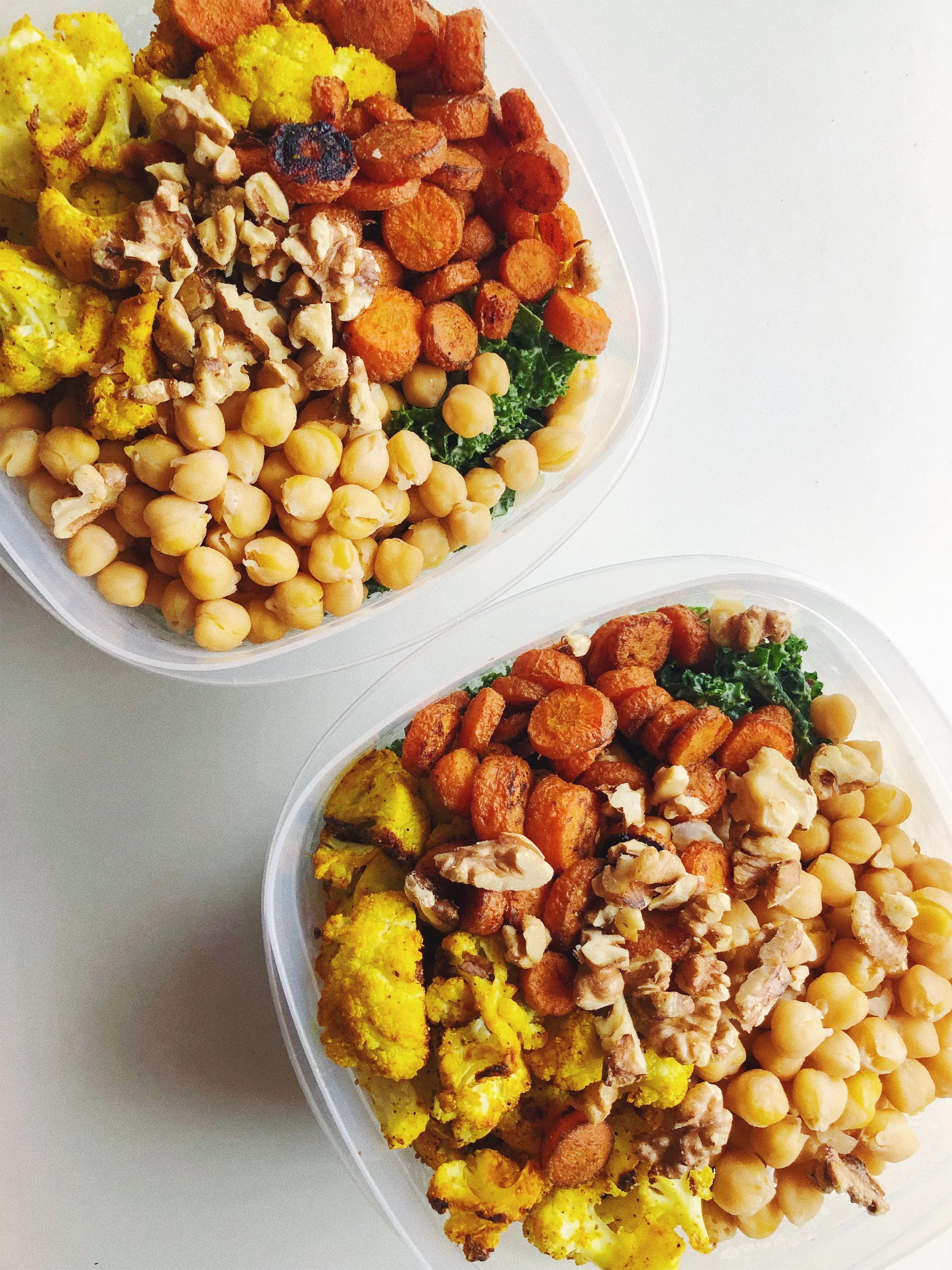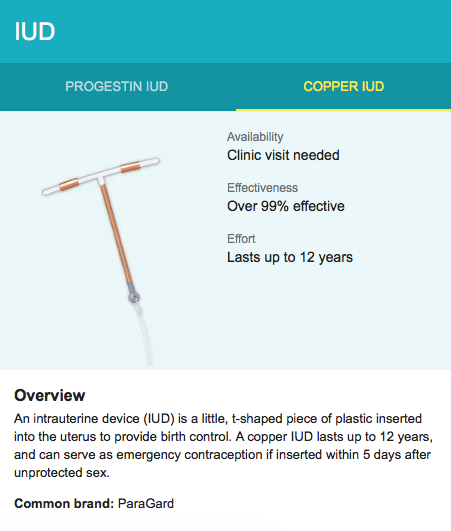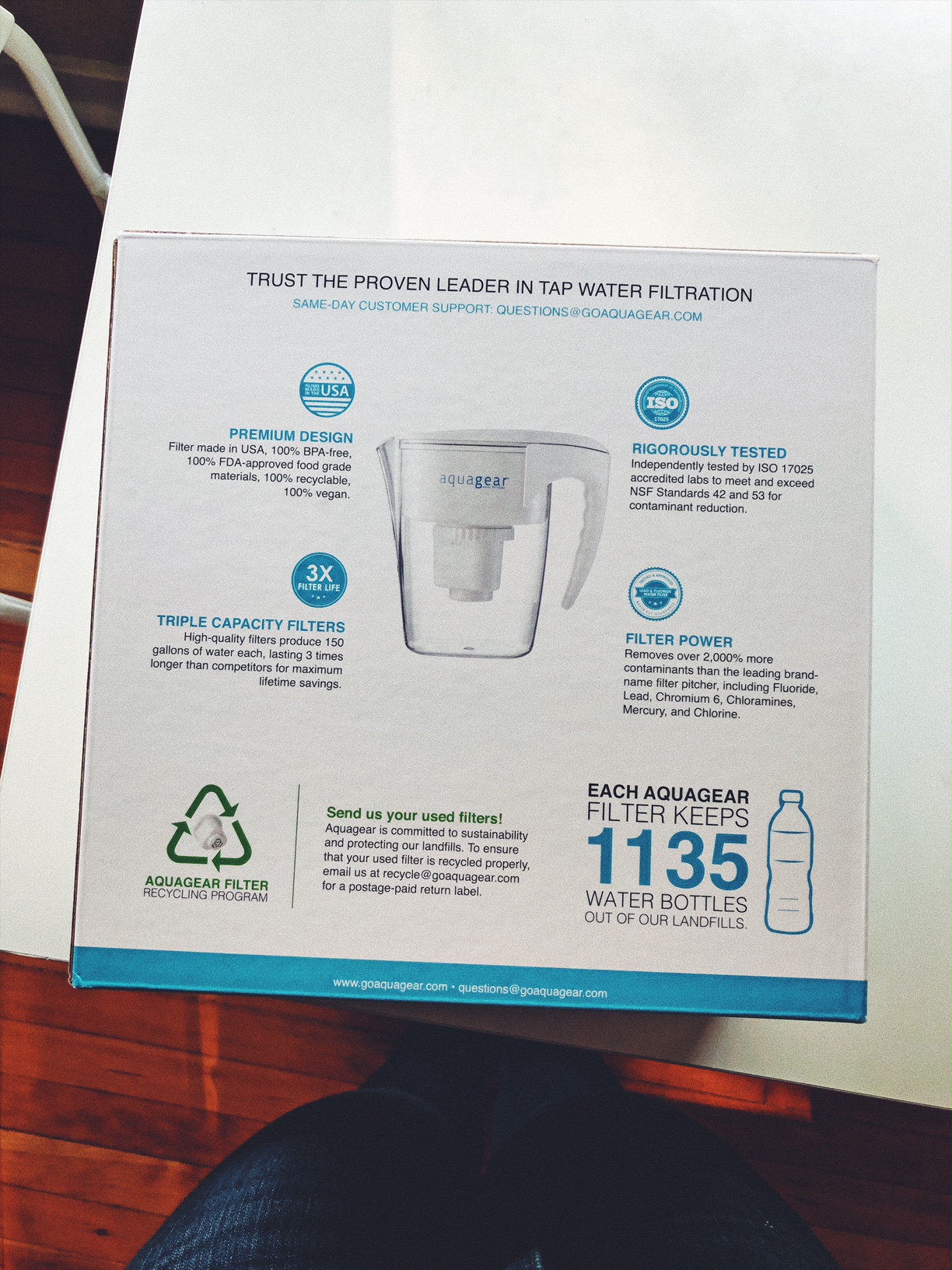It’s about time I got this up because it is one of the things I find myself talking about the most with people. I love recommending Bulletproof beverages and people ask me about them constantly. So here is my complete guide to hopefully answer all of your questions about everything Bulletproof!
What is Bulletproof coffee?
Bulletproof Coffee in its original form is coffee blended with grass-fed butter. Many people also add MCT oil, which stands for medium chain triglycerides. It’s a type of fat found in coconut oil that is quickly used by our body for energy.
How did it become a thing?
Yak butter tea is common in Tibet, where people live and work in a high-altitude and rugged terrain. They depend on it for energy and warmth. Dave Asprey was traveling there in 2004 and was also battling some health issues. He loved the way this yak butter tea made him feel, brought the idea back with him and eventually subbed grass-fed butter for yak butter and coffee for tea and - Bulletproof Coffee was born. He eventually founded his own company, Bulletproof, and created a whole lifestyle based on this drink.
Why would I want to drink it?
We know now that the whole low-fat movement of the 90s was a massive mistake. Healthy, well-sourced fats are good for us. They are essential for energy, cognitive function, skin health and more. The typical American breakfast is carb-heavy (bagels, cereal, pastries, etc) which spikes blood sugar and leaves us crashing a few hours later. There is no blood sugar spike when we consume fat, so by focusing on consuming the RIGHT fats, we can keep our energy up. Many people like the way it makes them feel, the way it boosts cognitive function, the way it saves time in the morning and the way it gives them some sustenance, even if they’re not breakfast people. It also helps to slow the absorption of caffeine, providing a more steady flow of energy - rather than a spike and crash.
Who is Bulletproof coffee for?
People who currently drink coffee in the morning and often skip breakfast. The fats will counteract any negative effects of caffeine and provide sustenance - almost like a meal replacement.
Anyone who wants a more sustainable source of energy in the morning.
People short on time in the morning.
Anyone who suffers from a crash when drinking regular coffee.
It can be a valuable tool for those who want to lose weight.
Those who are trying to eat fewer carbs or kick the sugary lattes to the curb.
Before an early morning hike, a Bulletproof bev gives me energy without feeling too full.
Is there anyone who should avoid Bulletproof beverages?
Those with adrenal fatigue or adrenal dysfunction issues should steer clear of BC until they’re recovered. This is partially because of the coffee since caffeine is stimulating to the adrenals. It’s also because you want to be eating consistent meals while healing the adrenals and BC may not be enough in the morning. You can still incorporate it, but don’t use it as meal replacement and use something besides coffee. If you don’t currently consume a lot of fat, start small and build up since too much fat if you’re not used to it can cause an upset stomach. That being said - only YOU know YOUR body. If you don’t feel good when you drink it, don’t drink it or play with it until you find a formulation that makes you feel good.
So how do I make it?
Here is the basic original recipe:
12-16oz your favorite coffee, hot
1-2 tbsp grass-fed butter
1-2 tbsp MCT oil
Add everything to a blender and blend on high for about a minute. You could also use a frother, which is super convenient if you don’t feel like washing a blender or don’t want to wake people up. The result will be a frothy, latte-like, absolutely delicious coffee!
***If it’s your first time using MCT oil, start with 1 tsp and gradually work your way up to a full tablespoon over several weeks. It can have a laxative effect if your body isn’t used to it.***
Can I add sweetener to it?
Frankly, this kind of defeats the purpose of Bulletproof Coffee. The idea is to be garnering your energy from FAT rather than sugar. If you’re trying Bulletproof Coffee, it’s likely you might be trying to de-sensitive your tastes buds to sugar anyways, so try to go without it. If your goal is to extend an overnight fast or practice intermittent fasting, adding sweetener could knock you out of that fat-burning mode (ketosis). I would say reserve sweetener as a special treat and I would recommend using honey or maple syrup or stevia (I don’t recommend using stevia a lot, so truly reserve it as a treat).
Variations
I don’t personally use butter, I use ghee - which is clarified butter, meaning the milk solids/proteins have been cooked off. You can definitely use ghee if you’re sensitive to dairy or just prefer it. I will also use coconut butter in place of the butter/ghee. Coconut butter adds a little sweetness while still being predominantly fat. I switch between using coconut butter and ghee.
I also add tons of cinnamon and a pinch of salt. Cinnamon adds some natural sweetness and helps regulate blood sugar. I add salt to everything.
More often than not, I use decaf or half-caf coffee just because I personally try not to over consume caffeine. You still get nice energy from the beverage. I’m also a huge fan of Rasa Koffee, which is a caffeine-free coffee alternative packed with adaptogens that provide a natural boost in energy and nourish your system. It’s also super tasty!
Adaptogens - I use Bulletproof coffee as a vehicle for other brain boosting adaptogens like maca and lion’s mane. I generally don’t use a lot (about 1/4 tsp each) and I don’t use the super bitter herbs/adaptogens since there’s not much sweetness to balance it out.
Collagen peptides - a lot of people like to add some collagen peptides, which is basically a protein powder derived from animal bones. It’s flavorless, adds a little bit of protein, and can be healing for the gut, so it’s great for anyone working on gut issues. This protein can help make BC more satiating, so try it out if you’re not feeling full from the fat alone. It also helps to make the coffee a little more frothy.
Spices - feel free to experiment with adding all sorts of different spices - ginger, cardamom, clove, nutmeg, turmeric, even cayenne!
Iced Bulletproof bevies are great in the summer!
What else can I make Bulletproof?
The whole “Bulletproof” principle isn’t reserved just for coffee. You can make Bulletproof matcha, Bulletproof chai, Bulletproof Rasa, etc. Basically any type of warm liquid can be made Bulletproof! Matcha is especially yummy. I always use coconut butter with matcha to help balance out the bitterness of the matcha.
Other Tips
Iced Bulletproof beverages - don’t just add your usual ingredients to some cold brew. The fats will not melt and emulsify and it will be gross. I still prepare the beverage warm or hot, then pour over ice.
I’ll be honest - sometimes Bulletproof beverages don’t fill me up. I can drink one with 2 tablespoons of fat and a scoop of collagen peptides, and my stomach still feels hungry/empty. I’ve found that eating something very small can help me feel full. I usually pop one of my Chocolate Maca Cinnamon Balls and that’s all it takes to help me actually feel full for a few hours.
Sometimes I want the idea of a Bulletproof Coffee, but I want to eat it with breakfast and the combination seems like too much. In that case I just add much less fat - as little as a teaspoon of each and blend it. It still gives you the same idea, without being so filling!
I go through phases with Bulletproof Coffee. Sometimes I love them and am drinking them almost every day, other times I go for weeks without one. Sometimes they make me feel full and give me sustained energy, sometimes they don’t. Play with it to see what works for you!
Some of my Bulletproof essentials: ghee, coconut butter, XCT oil, cinnamon, collagen peptides.
Resources
I do recommend using Bulletproof brand MCT oil because the quality is so high and isolates the most potent fats. XCT is the basic MCT oil, Brain Octane is a step-up. I use XCT because I didn’t notice a huge difference between the two and XCT is less expensive.
I make my own ghee with Kerrygold butter, which is fairly easy (just keep an eye on it so you don’t burn it!). But ghee is pretty widely available. Just make sure it’s made from grass-fed cows. Fourth & Heart is a good brand and their vanilla version is especially tasty in coffee! If you’re just going for butter, unsalted Kerrygold is great.
For collagen peptides - Vital Proteins, Further Foods or Great Lakes Gelatin. The Trader Joe’s by me just started carrying small versions of Great Lakes (pictured about) for $9.99 - a great way to try them without making a huge investment.
This is the frother I bought for when I don’t want to use my blender.
Did I miss anything!? What has your experience been with Bulletproof Coffee. Please leave any questions or comments below!

